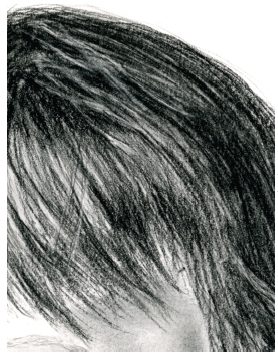Because graphite and charcoal are molecularly different …
… they have unique characteristics that can be utilized to increase the realism in a drawing.
Particles of graphite are uniform and flat, so laid down heavily, graphite reflects the light and appears silver and metallic.
Charcoal, conversely, has an irregular particle shape. The darks that you lay down with it stay matte and very black.
These differences also mean that there are ways that the two mediums can be used together, and ways that they cannot.
You can’t layer charcoal over a heavy layer of graphite, because the graphite is too slick for the charcoal to stick. You can, however, layer charcoal over light or
medium graphite, and graphite will always layer over charcoal.
Doing so will result in a very dark black that remains dark even after blending.
Graphite has a smooth, even tone and charcoal is more rough. Therefore, if you render skin tones in graphite and hair in charcoal, the two areas will automatically read as different textures. Doing so will also help the face to push forward visually and the hair to push back, just as it does in reality.
There are some areas on the face that are best done in charcoal, however; the darks of the eyes (pupil, corners, upper lid, some lines in the iris), eyelashes, and the line between the lips are examples.
Likewise, the lightest areas of the hair are best rendered in graphite. Pull a few individual strands through a highlight with a sharp graphite pencil to make a more realistic effect, or make some flyaway hairs that lift up off the main shape of hair.
Learn how to draw portraits like a master with our latest portrait mastery drawing course.
It’s just like having your own drawing teacher guide you step-by-step along the way without the expensive price tag.
No more smudgy mess with black and white that looks like a first grader whipped up in art class.
“Portrait Mastery” is generously illustrated showing you step-by-step just how to create a real life portrait.




